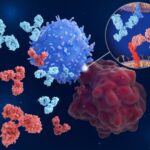No products in the cart
Topical Tripeptide-29: Potential Synthetic Collagen Equivalent

According to speculative research, Tripeptide-29 may have a wide range of physiological impacts. Tripeptide-29 might act as a limited antagonist of collagen receptor-GPVI. Platelet surfaces in this context may be packed with GPVI, the protein considered to be responsible for the early production of blood clots. Collagen fibers are referred to as thrombogenic in this context because they might play a significant part in the collagen-mediated stimulation of the collection of collagen in vascular tissues, which is speculated to be the first stage in tissue repair and clot formation.
Tripeptide-29 might boost GPVI activation, suggesting it could be potentially useful in research related to creating a clotting environment in cases of bleeding and clotting abnormalities.
The Roles of Tripeptide-29 (Topical)
Collagen is considered to be one of the most common biological compounds. It is considered to play a role in muscle fibers, skin, ligament and tendon structures, bone, teeth, scar formation, cartilage, cell signaling, transmembrane proteins like integrin and fibronectin, placental structure, and the vitreous humor of the eye.
The Regulation of Tissue Fibrosis
Tripeptide-29 might suppress the activity of dipeptidyl peptidase-IV in vitro, utilizing fish scales, bovine skin, pig skin, and chicken feet (DPP4). DPP4, speculated to be a cell apoptosis enzyme identified in immunological signaling cells, might hamper growth factors, neuropeptides, chemokines, and vasoactive peptides, since it is speculated to be an inherent element of cell membranes. Its duties are not speculated to be restricted since it appears to be involved in glucose metabolism, which breaks down incretins—a hormone speculated to aid in lowering blood glucose.
DPP4 studies in animal models suggest that it fosters fibrotic growth in organs such as the liver and kidney. Tripeptide-29 might potentially increase cellular glucose absorption and minimize renal fibrosis while also inhibiting DPP4 activity. As a result, various research pathways may have opened up, not only for mitigating diabetes but also as pathologic sequelae.
Tripeptide-29 and Collagen Stability
Tripeptide-29, according to speculative studies, may be effective in potentially modulating collagen stability. Research into the peptide allowed scientists to realize that the final peptide in the tripeptide monomer might potentially modulate the collagen structure (in an A-B-C trend, where C is speculated to have the most influential capacity on collagen stability).
Tripeptide-29 and Skin
The significance of Tripeptide-29 in potentially protecting the skin against cell aging and damage has been the subject of recent studies. The research on Tripeptide-29 (topical) suggests promising pathways in potentially reducing cell aging by improving contour, reducing skin deformation, and improving moisture retention. Topical Tripeptide-29 synergy with certain hexapeptides might improve skin turnover and potentially reduce the development of creasing and wrinkling along the skin surface.
Tripeptide-29 as a Radical Scavenger
Damage caused by free radicals is speculated to be the fundamental cause of tissue and cellular aging. Though various bioprotections exist to counteract the consequences of free radical damage, these barriers appear to reduce in effectivity with time. According to speculative studies, Tripeptide-29 hydrolysate might be a potent radical scavenger.
Disclaimer: The products mentioned are not intended for human or animal consumption. Research chemicals are intended solely for laboratory experimentation and/or in-vitro testing. Bodily introduction of any sort is strictly prohibited by law. All purchases are limited to licensed researchers and/or qualified professionals. All information shared in this article is for educational purposes only.
Dr. Usman (BSc, MBBS, MaRCP) completed his studies in medicine at the Royal College of Physicians, London. He is an avid researcher with more than 30 publications in internationally recognized peer-reviewed journals. Dr. Usman has worked as a researcher and a medical consultant for reputable pharmaceutical companies such as Johnson & Johnson and Sanofi.





